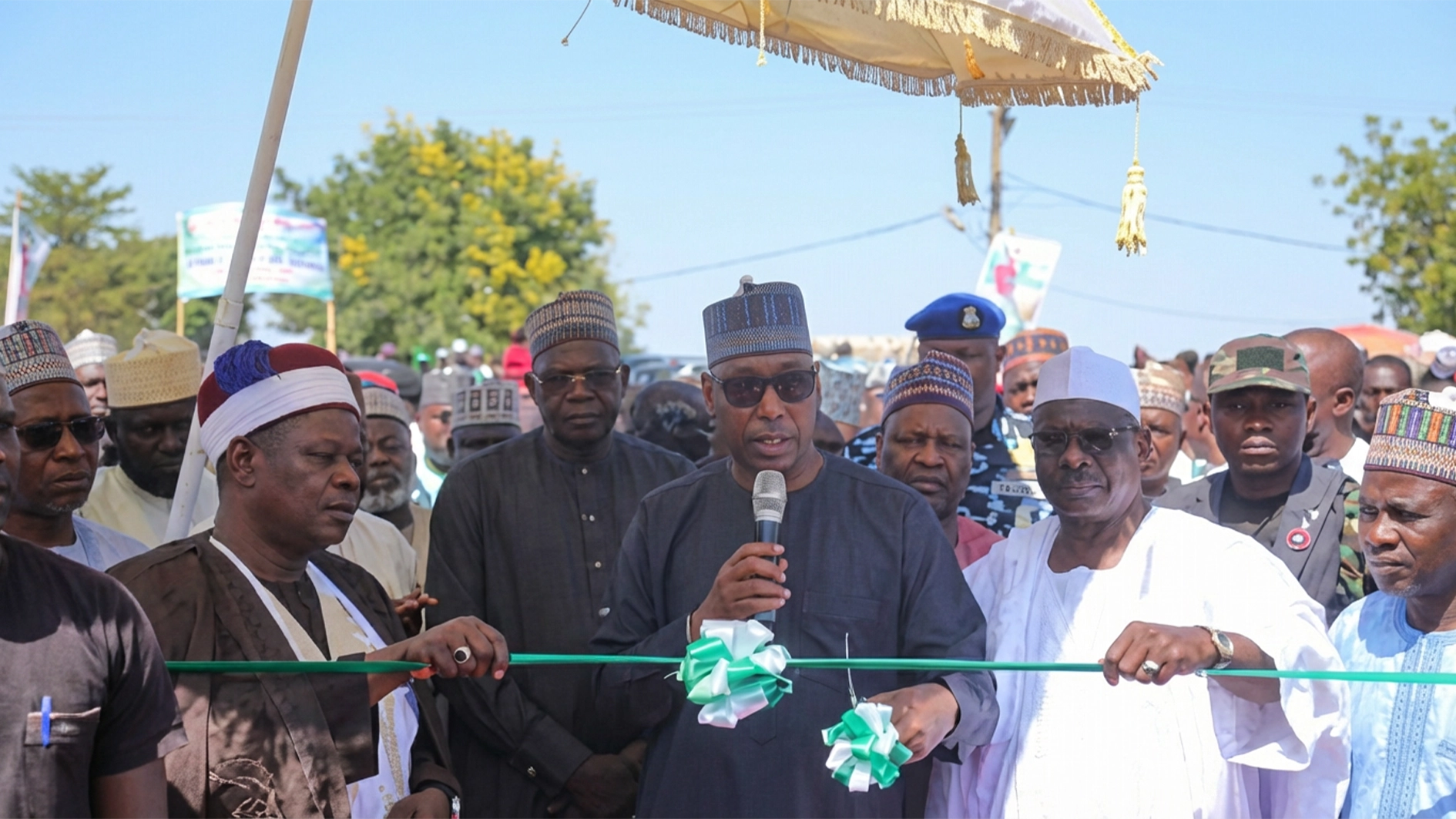
The move by the federal government to peg admission into tertiary institutions at 18 years has attracted criticisms from parents and stakeholders. Describing the move as retrogressive, they want it jettisoned pronto as it translates into the government shutting the doors against exceptional young minds and attempting to solve a systemic problem using age as a condition, IYABO LAWAL reports.
Year-in and year out, Nigerian universities constitute a party-pooper to young, exceptionally brilliant students, and by extension, their parents or guardians.
By putting on his way, a barrier that prevents cerebral Ekele Franklin (who was the overall best candidate in the 2020 Unified Tertiary Matriculation Examination (UTME) with a score of 347) tertiary institutions like the University of Lagos (UNILAG) have again pressed the “pause” button on the academic journey of a young Nigerian, who is guilty of being 15-year-old.
Although the 16-year age limit requirement for most university admissions has no legal backing, it has become the gold standard for some universities in the country, which in their post-UTME advertorials, state that: “Candidates, who are not 16 years of age are not eligible and need not apply.”
Franklin is not the only teenager caught up in the dragnet hurled by Nigerian universities for exceptionally brilliant students. Another brilliant youngster, David Okorogheye, was also stopped in his tracks while trying to apply to the same UNILAG despite scoring 332 in the 2021 UTME.
There is also Tochukwu Nwafor. Gangly and sometimes shy, at 14, he has already completed his secondary school education, and his mien exuded confidence.
Indubitable and precocious, Nwafor is as tall as a 16-year-old, and following his successful outing in the West African Senior School Certificate Examination (WASSCE), and the UTME, the sky was his limit.
He was not savouring this euphoric sense of accomplishment alone, his parents were in it also and their faces were lit with pride and fulfillment each time their son’s academic prowess was discussed. Perhaps they were also assailed by a delirium of excitement that their beloved son would likely complete his first degree by the age of 18.
Buoyed by all these feelings, they walked shoulders high, and gracefully into the Admissions Office of a federal university in the South-East, but emerged from it with grief. The verdict: The university would not accept Nwafor because of his age – he was yet to be 16.
In an era when 16-year-olds have demonstrated exceptional academic brilliance, and at a time when public universities are bedevilled with protracted challenges, that constantly disrupt the academic calendar, the Federal Government is proposing an 18-year entry requirement for prospective admission seekers.
As of September 2023, the estimated population of Nigeria stood at about 220 million, according to the United Nations, with an average of 17.9 years of which a greater majority are young people, with 42.54 per cent between the ages of 1 and 14. The country’s very high dependency ratio stands at 88.2 dependents per non-dependents.
Indeed, a third of all unemployed persons in the country are between the ages of 25 and 34, according to government data, and human resources professionals say the prospect of discrimination based on age poses a barrier against these people securing jobs.
Age is an important factor in the recruitment process in Nigeria, and job adverts, especially for entry-level positions or graduate trainee jobs in the private sector, are often capped at 24 years.
Nigeria is currently dealing with a backlog of students who are yet to enter the university. For those who have already secured admission, due to the perennial industrial crisis between the government and university unions, students are only certain of their admission dates, as that of their graduation is never guaranteed. Most four and five-year academic programmes spill into five and six years or even more, because of strike actions.
This poses a challenge of meeting the oft-acceptable employability age by private sector employers.

Many companies, including local and foreign ones operating in the country, have put in place, strange and illegal age-limiting policies that have ensured that countless employable Nigerians are deprived of job opportunities based on their age, regardless of their skills and competencies.
In several vacancy publications, most companies ask applicants who are beyond 25, 26, or 27 years of age not to bother applying, as they would not be considered for employment.
Commercial banks, other financial institutions, and those in the hospitality industry, including restaurants are highly involved.
To justify the proposed 18-year age requirement, Education Minister, Tahir Mamman, decried the activities of some parents, who were pressuring their underage children and wards to get admission into tertiary institutions.
The minister said that the 18-year benchmark is in line with the 6-3-3-4 system of education.
He said: “Parents should be encouraged not to push their wards too much. Mostly, it is the pressure of parents that is causing this. We are going to look at this development because the candidates are too young to understand what university education is all about. This is the period when children migrate from controlled to uncontrolled environments; when they are in charge of their affairs. But, if they are too young, they won’t be able to manage things properly. I think that is part of what we are seeing in the universities today,” Mamman said.
Apart from the Academic Staff Union of Universities (ASUU), which supported the proposal, education experts and stakeholders argue that the implementation of the age-limit policy is a disaster waiting to happen.
With more vibrant and precocious kids completing their primary and secondary education earlier than ever imagined in the past, and the universities shooing them away on age grounds, they cautioned the Federal Government against taking steps that may make young admission seekers despondent.
Faith Oyende, the 2019 Lagos State University’s best graduating science student’s story illustrates the angst of those denied admission on the grounds of age.
Twice, young Oyende was denied admission into a university because she had not attained the age of 16. She eventually graduated with a 4.68 cumulative grade point average (CGPA) at the age of 21 having studied biochemistry.
When asked about her story, she stated: “It is a long story. I wanted to become a medical doctor, but I was denied admission into the University of Lagos (UNILAG), and the Lagos State University (LASU) because I was not yet 16 years old. Having finished secondary school at the age of 15, I wrote and passed the UTME. But during the post-UTME test, I was told that I must be 16 on or before October 1 of that year if I must be considered for admission.”
Unfortunately for her, she did not turn 16 until January 1 of the following year.
A similar situation was what 15-year-old Orisheneye Okorogheye, who made A1 in all his subjects at the SSCE level encountered and was denied admission into the university.
An indigene of Warri North Local Council of Delta State, Okorogheye graduated from Starfields School, Iju, Lagos State, and wanted to study neurosurgery. Over the years, alleged retrogressive educational policies have momentarily beclouded the realisation of such shiny ambitions.
Not a few Nigerians are wondering if the nation’s ivory towers are progressive and futuristic in their thinking on the issue of age requirements for admission seekers.
The Director of Studies at Starfields, Chris Eigbe, argues that people like Okorogheye should be given scholarships, and admitted into universities so that they can achieve their dreams at a young age.
Similarly, a Professor of Adult Education, Anthony Ogbeide, pointed out that children with exceptional performance should be given a waiver because, according to him, using the age limit to momentarily halt their academic momentum might not be good for the nation and the individuals involved.
Ogbeide said: “I think there should be an exception to every rule, particularly for exceptionally brilliant students. But why should there be an age requirement for university admission in the first place?”
For Dada Olanrewaju, a career guidance counselor, the dynamic nature of contemporary society, and the attendant globalisation are some of the factors responsible for the diverse changes witnessed along this line.
According to him, globalisation has made some students very smart in learning, due to the introduction of advanced learning gadgets, as well as, the Internet.
He, however, cautioned that it is not always advisable to admit students below the age of 18 into universities as most of them possess low Intelligent Quotient (IQ), and cannot meet the demands of society.
But an education consultant, Mrs Busola Adegbaju, thinks differently, especially given the mental transitions/milestones that must be attained en route to higher education.
She posited: “The national curriculum and age range should be followed as it is a yardstick for admission into any academic institution. At a certain age, a child is expected to exhibit some skills morally, intellectually, emotionally, and socially. It is imperative to maintain the standard of education, by following the national curriculum that is designed to produce a total child that will, in turn, face future challenges that may not be academic-related.”
In saner climes, experts note, the federal and state ministries of education would have called a summit on the attainment of a certain age before applicants can be admitted into the university. To them, it is an issue of national and human capital development.
They argued that Nigerian youths have a lot to offer their fatherland and must, therefore, be protected by the government by the way it defines policies, especially in the education sector.
Stakeholders, however, urge the Federal and state governments to return the nation’s tertiary education system to its glorious days. With implicit confidence that a four-year programme will run as such, perhaps, not many parents will be eager to push their children through the ivory tower, while they are still enjoying their childhood.
As the issue rages, experts call on the Federal Government to avert the looming disaster of wasting the brains of young, vibrant, and scholarly youngsters.






